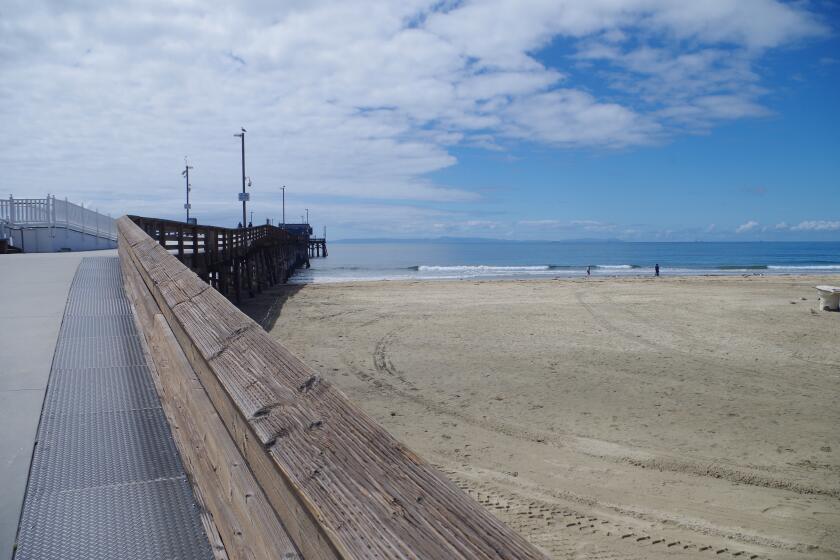JOSEPH N. BELL -- The Bell Curve
- Share via
I like to gamble. I don’t regard this as either a virtue or a
character defect. Just a fact. Like any other human activity, it becomes
a negative if indulged excessively. But in its benign state, it offers up
some lessons that seem to me applicable to the testing of our society
taking place today.
Successful gambling -- if that isn’t an oxymoron -- is based on odds
and probabilities. The odds, for example, are much longer drawing to an
inside straight than a four-card flush. Or in picking six winners at a
race track than betting a favorite across the board. I learned this as
far back as the eighth grade, when the guys I hung out with played
three-chips-for-a-penny poker in the depths of the Great Depression.
Losing 50 cents in one of these games was a heavy hit. So we learned the
odds well.
That’s why I never play the lottery. The odds are so outrageously bad
that there can be no sense of anticipation or expectation. Those odds
could be changed if a whole series of lesser prizes were offered, but
sales would go down if that were to happen. Most Americans would rather
chase one $10-million prize than 10 prizes of $1 million or 100 prizes of
$100,000. In other words, most Americans would prefer to artificially
shorten odds that range from improbable to impossible in order to
rationalize buying into a loaded game.
It’s an easy leap for me from this generalization to the hordes of
Americans who poured into Tijuana to buy antibiotics to fight off an
anthrax attack. The odds that any of us will need protection from anthrax
are probably even longer than winning the lottery. And the odds are much
shorter, according to health experts quoted on TV and in the press, that
people buying this stuff will harm themselves by misusing it. The panic
that leads to buying these antibiotics is more than absurd; it is
precisely what the people showering us with threats from the caves of
Afghanistan want to happen.
Before Sept. 11, there was a certain amount of risk in virtually
everything we did. Walking across a busy street was an adventure. So was
changing lanes on a high-speed freeway. Or honking at a driver who cut
you off. Or living on an earthquake fault. We were vaguely aware of these
risks but -- like flying on a commercial airliner -- we paid them little
attention. Some of them we could control with our own behavior, and those
we couldn’t didn’t worry most of us because the odds were overwhelmingly
favorable that nothing bad would happen to us.
That is almost as true today as it was then. But the people who would
bring us to our knees by random acts of terror would have us believe
otherwise. They have frightened many of us off airliners, and now they
have large segments of our citizens in a panic over anthrax. Being alert
to danger and taking rational precautions to circumvent it is
intelligent. Allowing it to escalate to panic isn’t.
In a book called “Healing the Anxiety Diseases,” Thomas Leaman tells
us that “to live means to experience anxiety. Life is filled with
uncertainty, and whenever there is uncertainty, there is also
anxiousness.” He then goes on to say that we need to learn to put worries
into proper perspective by acting, trusting or putting them aside,
because when anxiety symptoms disrupt life by interfering with our
ability to function, they are not part of normal anxiety.
The public rallying cries from our leadership in this national anxiety
attack tend to be more truculent than Churchillian in nature. Those of us
old enough to remember would like to reprise Franklin Roosevelt saying:
“The only thing we have to fear is fear, itself.” Never in our history --
even under the circumstances in which FDR actually said them originally
-- have these words carried more impact than they do now. Fear is the
most important weapon in the arsenal of terrorists -- including those
patriots who are sending death threats and a white powder, of whatever
nature, to Planned Parenthood clinics. I can only hope that they get the
same treatment as their soul mates in Afghanistan when they’re caught.
Charlie Miller, president of the National Assn. of Letter Carriers,
was quoted in news reports Tuesday as saying that dogs, bad drivers and
crime continue to pose a greater danger than anthrax to our letter
carriers. “We have a mission to accomplish,” Charlie said. “We have to
continue with our way of life.”
Charlie Miller has it right. By contrast -- according to the Los
Angeles Times -- a provider of employee assistance programs called United
Behavioral Health has conducted more than 2,000 “critical incident stress
debriefings” among employees nationwide in the past four weeks. A typical
month before Sept. 11 was 40 to 50 such sessions. I can’t help wondering
how many “debriefings” the citizens of London had during the Battle of
Britain.
I would suggest to the employees being debriefed and the people
flocking to Tijuana to buy antibiotics that -- like the letter carriers
-- they go with the odds and continue their way of life. That’s a lottery
they can win.
* JOSEPH N. BELL is a resident of Santa Ana Heights. His column
appears Thursdays.
All the latest on Orange County from Orange County.
Get our free TimesOC newsletter.
You may occasionally receive promotional content from the Daily Pilot.



